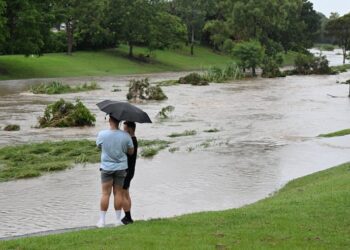To continue her work to develop a cancer “kill switch” and improve therapeutics, Dr. Catriona Jamieson, director of the Sanford Stem Cell Institute at UC San Diego in La Jolla, has been awarded a $2 million grant from the International Space Station National Laboratory and NASA’s Biological and Physical Sciences Division.
Jamieson and her team say cellular and medicinal responses are much faster in space than on Earth — creating new opportunities for testing and experimentation that could yield results quicker.
In low Earth orbit, the weak pull of gravity — known as microgravity — places cells under incredible stress and promotes inflammation, causing an accelerated version of a process that resembles aging, according to UCSD. When scientists send organoids — miniature versions of cancerous tumors or organs created from the stem cells of consenting patients — to space, each month can provide a preview of several years of disease development and progression, as well as drug efficacy.
Thus, Jamieson said, “the grant from NASA is to study mini-tumors that we made in the lab … as part of the White House’s Cancer Moonshot initiative to eradicate cancer from this planet. But to do that, we have to understand how tumors respond to stress conditions in space.”
“Space accelerates cancer development and gives us insights as to how to block it,” she said. “When you put cancer in these environments, you see some things are more effective than others. We’re looking to see what cancers respond to these drugs in these accelerated conditions.”
During recent missions on the International Space Station, the team tested certain drugs, some of which prevented cancer from being able to replicate.
One of them, rebecsinib, an anti-cancer drug developed by Jamieson’s team, “killed the cancer’s capacity to clone itself,” she said. “That’s why cancer comes back — it has the ability to clone itself and spread to other areas of the body.”
Rebecsinib is now being considered as a possible “kill switch” for 20 types of cancer, including triple-negative breast cancer and leukemia. A clinical trial of rebecsinib is expected to launch next year, pending regulatory approval.
“This information helps guide us as to which cancers we go after and focus on, which is important for the [U.S. Food and Drug Administration],” Jamieson said. “It’s a pivotal piece of data the FDA looks for; it’s the mechanism they need. This is going to refine the cancers we treat.”
Additionally, she said, work is underway to migrate cancer-fighting drugs from intravenous delivery to pills.
But to get there, “we need a lot more data,” Jamieson said. “But because we can test it in microgravity, this will be the first thing we develop in space.”
To date, the team has completed seven spaceflights led by mission specialist Jessica Pham, with research payloads investigating a variety of stem cell- and cancer-related topics.
Jamieson also was recently honored with the International Space Station National Laboratory’s 2024 Compelling Results Award in Biology and Medicine, which is given to researchers whose labs perform seminal work on the ISS.
Jamieson’s award recognizes the discovery that low Earth orbit’s microgravity accelerates stem cell exhaustion while allowing cancer proliferation to “take off” by activating the gene ADAR1, which rapidly increases tumor growth. The award also recognizes her team’s discovery that rebecsinib can effectively block that process. ♦
Source link : http://www.bing.com/news/apiclick.aspx?ref=FexRss&aid=&tid=66cf73d9ff064b1b816c4cef325feb0f&url=https%3A%2F%2Fwww.sandiegouniontribune.com%2F2024%2F08%2F28%2Fla-jolla-researchers-space-science-is-awarded-2m-to-work-on-cancer-kill-switch%2F&c=3816175761028811626&mkt=en-us
Author :
Publish date : 2024-08-28 06:59:00
Copyright for syndicated content belongs to the linked Source.






